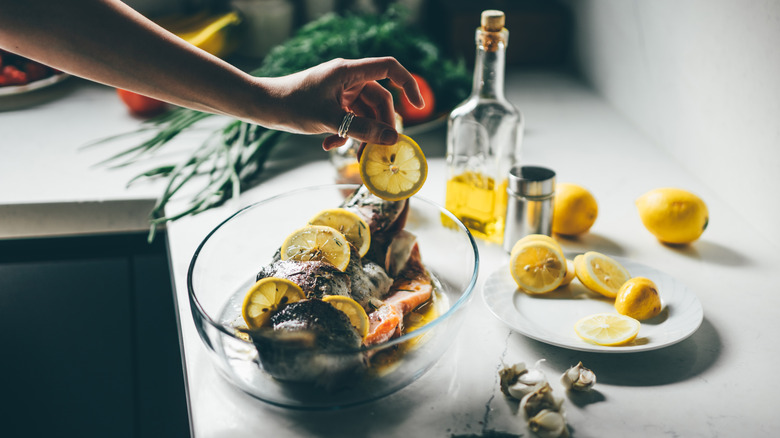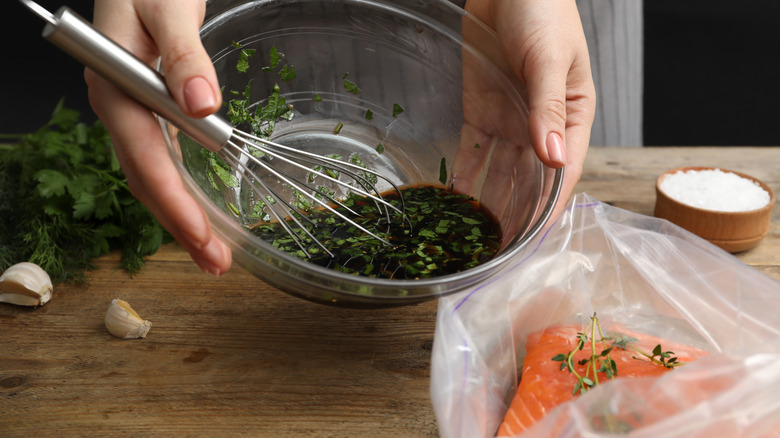The Acid Rule To Consider When Marinating Fish
When you want to imbue your dish with lots of flavor, there's nothing quite like a marinade to get the job done. Lighter and more subtle than a sauce, a marinade puts the protein in the gastronomic spotlight. However, performing these culinary ablutions doesn't simply come down to soaking meat or fish in a random assortment of oils, herbs, acids, and spices (as fun as that sounds and as delicious as that idea may seem). According to Kory Foltz, the Executive Chef of Sunseeker Resort, there is a scientific principle to follow when you're creating and executing a marinade — especially when the protein is fish.
The types of herbs, acids, etc. to add to the marinade will mostly depend on the flavor you're looking for — although you do want to avoid too much acid (like lemon juice or vinegar) — but the ratio of acid to how long your protein marinates has to be more precise. "The important thing is the ratio of acid to time marinated," Foltz told Food Republic. "Acid is very powerful and can manipulate the final texture as well as impede the cooking process. So the more acid used, the less time marinated."
The acid in a marinade denatures the proteins, which basically means that it breaks the molecular structure down of hydrogen bonds, making them looser. This allows the marinade's flavor to penetrate the protein's surface, and it also alters the texture. But the more you let a marinade sit, the stronger that reaction becomes.
Be more gentle when you marinate fish
Denaturation will happen when you let any protein sit in an acidic marinade, meaning this same molecular process applies to anything like chicken, steak, or pork. However, Chef Kory Foltz's acid-time ratio is particularly essential when considering fish. "Meat and chicken are much stronger, tougher, and more forgiving with marination," he said. "Fish is very delicate and takes less time to marinate."
That delicacy is crucial to remember. If you let the fish sit in its acidic marinade for too long, it will become opaque and firm up almost like it was cooked with heat (consider something like a scallop ceviche with plums). Unless a recipe specifically calls for a longer marinating time, which is sometimes the case with dishes like a Hawaiin tuna poke, you typically want to marinate most fish for only about 30 minutes or for no more than an hour with a fillet of firm fish, like cod or haddock. Then, you can cook your marinated salmon or tuna as intended, and it will emerge with the right texture.
The delicacy of fish also means, according to Foltz, that "it needs a more mild marinade." You'll want to avoid heavy or overpowering flavors in favor of lighter varieties and don't go overboard with that acid. Even ingredients with milder flavors have to rely on the ratio. Don't let your fish sit too long in acid — let the flavors permeate the dish but don't let the marinade impair the cooking process.


